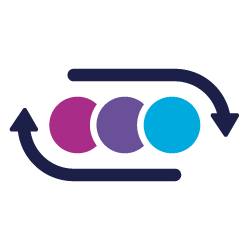

3 Key Elements of a Successful Digital Transformation Strategy
Prior to Covid-19, the life sciences industry's receptiveness to embracing transformative digital strategies had long been stagnant, even with their desire for change. Marketers lobbied for cross-channel strategies, aimed at providing their customers with relevant, meaningful content. IT needed to ensure technology solutions were compliant to deliver this content. In the middle – Marketing Operations are tasked to achieve both.
Year over year, marketing operations leaders are required to deliver strategic roadmaps aimed at achieving the greatest value while still meeting organizational goals. To be effective, these same leaders must take an internal and external customer-centric approach, putting various stakeholders at the heart of defining their marketing organization's success.
When looking to optimize digital technologies to deliver meaningful content to your patients and healthcare providers, while maintaining compliance, there are 3 key components that will help drive a successful digital transformation.
1. Ensure digital platforms are scalable for growth
Agility is key in an operating model which will deliver relevant, compliant, and cost-efficient content. Most life-sciences organizations' content management starts at the medical, legal, and regulatory ("MLR") review stage. However, by bringing marketing resource management ("MRM") on platform and enabling agile workflows with different review types, supported by digital asset management ("DAM") and brand portals, marketing teams can repurpose and reuse assets. Then, in collaboration with your MLR teams, you can begin enabling modular content which will allow teams to quickly adapt their content to respond to customer needs and wants.
2. Align your digital strategy with your global content strategy
The dependencies and accountabilities necessary for marketing operations leaders to be successful mostly rely on strong partnerships with marketing and IT. Marketing Operations is responsible to ensure the processes and workflows are in place supporting end-to-end content development. Marketing is responsible for the content and IT for the technology. Effective Marketing Operations leaders must be lock step with marketing teams, understanding their strategy, campaign planning and budgets associated with developing these campaigns. With a clear line of sight into global marketing planning, and in collaboration with IT, marketing operation leaders can bring forth compliant technology solutions which will support the execution of these strategies, while also mitigating risk.
3. Adoption and Change Management
Training is only one part of change management. However, adoption of change is even more important. So, what helps to drive adoption?
- Change starts from the top. Leaders must not only support this change but participate in the change strategy so as to drive engagement.
- For your stakeholders, it’s all about what’s in it for them. Consider bringing in Change Champions who will participate in some of the decision-making influencing this change. This with clear communication detailing the benefits, timing and actions needed allows employees to feel a part of the change, while you can manage expectations.
- Consider an interactive training session, where users are participating in the training. Perhaps include a few fun quizzes or games to help keep people engaged and wanting to learn more.
- And finally, don’t forget to include digital transformation KPI’s designed to measure organizational, end-user, and operational success. These metrics ultimately ladder back to your strategic roadmap.
Digital transformation is a journey. Every organization is at a different stage of its journey, each with its own distinctive goals. By starting your journey with an unbiased approach and drawing on prior learnings, you will instinctively improve the outcomes and experiences for all teams.
As someone who has had to both define and implement these three critical components, today I have the unique advantage of partnering with life science organizations, guiding them through what good looks like and what better achieves. Please free to reach out to me to further discuss your digital transformation journey.
Read more about our Life Sciences industry expertise here.
Stephanie Taubin, Senior Client Partner

.png?length=800&name=Untitled-4-CrOps%20Maturity%20Assessment%20landing%20page%20graphic%20(1).png)


%E2%80%8B%20%E2%80%8B.png?length=256&name=Blue%20B__Implement-%20(Technology%20Implementation)%E2%80%8B%20%E2%80%8B.png)
%E2%80%8B%20%E2%80%8B.png?length=256&name=__Implement-%20(Technology%20Implementation)%E2%80%8B%20%E2%80%8B.png)
%E2%80%8B.png?length=256&name=Blue%20B__Adopt-%20(Technology%20Adoption)%E2%80%8B.png)
%E2%80%8B.png?length=256&name=__Adopt-%20(Technology%20Adoption)%E2%80%8B.png)






%E2%80%8B-%E2%80%8B%20%E2%80%8B.png?length=256&name=Blue%20B__Align%20(Content%20Alignment)%E2%80%8B-%E2%80%8B%20%E2%80%8B.png)
%E2%80%8B-%E2%80%8B%20%E2%80%8B-1.png?length=256&name=__Align%20(Content%20Alignment)%E2%80%8B-%E2%80%8B%20%E2%80%8B-1.png)
.png?length=256&name=Blue%20B__Activate%20(Content%20Activation).png)
-1.png?length=256&name=__Activate%20(Content%20Activation)-1.png)


























